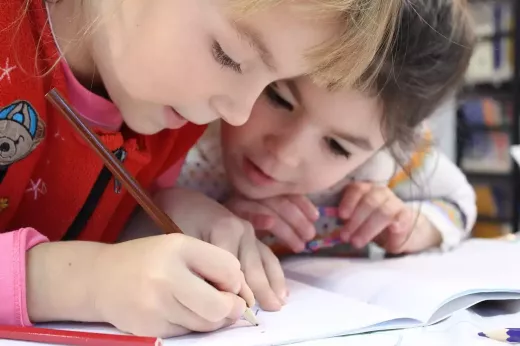Introduction:
Parenting is a journey filled with love, challenges, and immense responsibility. However, not all parenting styles are created equal. Negative parenting styles, characterized by harsh discipline, neglect, or constant criticism, can have a profound impact on a child's well-being and future development.
In this article, we delve into the critical topic of negative parenting styles and shed light on the warning signs and consequences that parents and caregivers need to be aware of. It is essential to recognize that negative parenting styles can have long-lasting effects on a child's emotional, psychological, and social growth.
By understanding the warning signs early on, we can take proactive steps to address the issue and provide a nurturing environment for our children. We explore the potential consequences of negative parenting, including decreased self-esteem, poor academic performance, impaired social relationships, and even higher rates of mental health issues.
By raising awareness about the impacts of negative parenting styles, we aim to encourage a shift towards positive, constructive child-rearing practices that promote healthy growth and flourishing futures for our children. Let us embark on this crucial journey together and empower ourselves with knowledge to become the best parents we can be.
The importance of parenting styles for children's development
Parenting styles play a crucial role in shaping a child's development and overall well-being. The way parents interact with their children, set boundaries, and provide support can have a significant impact on their child's emotional intelligence, self-esteem, and ability to navigate relationships later in life.
Positive parenting styles, such as authoritative parenting, encourage open communication, mutual respect, and consistent discipline. This approach fosters a sense of security, trust, and positive reinforcement, leading to healthy emotional development, academic success, and improved social skills.
On the other hand, negative parenting styles can hinder a child's development and contribute to various negative outcomes. Understanding the different types of negative parenting styles is essential for recognizing the warning signs and taking appropriate action to provide a healthier environment for our children.
Positive parenting styles and their benefits
Positive parenting styles, such as authoritative parenting, have been extensively studied and proven to have numerous benefits for children. This approach combines warmth, clear expectations, and age-appropriate boundaries to create a nurturing and supportive environment.
Authoritative parents are responsive to their child's needs, provide guidance, and encourage independence. They foster open communication and allow their children to express their opinions and emotions in a safe and constructive manner. This parenting style has been associated with higher self-esteem, better academic performance, and improved social skills in children.
By adopting positive parenting practices, parents can create an environment that promotes healthy development, resilience, and overall well-being in their children.
Negative parenting styles and their impact on children
Negative parenting styles, in contrast, can have detrimental effects on a child's emotional, psychological, and social growth. Let's explore some common negative parenting styles and their potential consequences.
Authoritarian parenting style: signs and consequences
Authoritarian parents tend to be strict and demanding, setting high expectations without providing explanations or emotional support. They rely on punishment and control rather than open communication and understanding.
Children raised in authoritarian households may exhibit signs of fear, anxiety, and low self-esteem. They may struggle with decision-making, lack problem-solving skills, and have difficulty forming healthy relationships due to a lack of trust and autonomy.
Permissive parenting style: signs and consequences
Permissive parents are lenient and overly indulgent, often avoiding discipline and setting consistent boundaries. They prioritize their child's immediate happiness over long-term development.
Children raised in permissive households may struggle with self-control, exhibit impulsive behaviors, and have difficulty respecting authority figures. They may also face challenges in academic settings and have a skewed understanding of boundaries and consequences.
Neglectful parenting style: signs and consequences
Neglectful parents are emotionally detached and fail to meet their child's basic needs for love, care, and attention. They may be preoccupied with their own lives, resulting in neglectful behaviors.
Children raised in neglectful households may experience feelings of abandonment, low self-worth, and difficulty forming healthy relationships. They may struggle academically, have poor impulse control, and be at a higher risk for mental health issues.
Authoritative parenting style: signs and benefits
Authoritative parenting is characterized by a balance of warmth, clear expectations, and open communication. These parents provide guidance, set boundaries, and encourage independence while also being responsive to their child's needs.
Children raised by authoritative parents tend to have higher self-esteem, perform better academically, and exhibit better social skills. They are more likely to develop healthy relationships, have good emotional regulation, and become self-reliant individuals.
Recognizing the warning signs of negative parenting styles
Recognizing the warning signs of negative parenting styles is crucial for early intervention and creating a healthier environment for our children. Some common warning signs include:
1. Harsh or inconsistent discipline methods2. Lack of emotional support and empathy3. Overly permissive or neglectful behaviors4. Constant criticism and belittling5. Inconsistent or absent boundaries6. Lack of open communication and trust
By being mindful of these warning signs, parents and caregivers can take proactive steps to address any negative parenting tendencies and seek support or resources to improve their parenting approach.
Understanding the long-term consequences of negative parenting styles
The consequences of negative parenting styles can extend far into a child's future, impacting various aspects of their lives. Some potential long-term consequences include:
1. Decreased self-esteem and self-worth2. Poor academic performance and lack of motivation3. Impaired social relationships and difficulty forming meaningful connections4. Higher rates of mental health issues, such as anxiety and depression5. Increased risk of engaging in risky behaviors, such as substance abuse or delinquency
It is essential for parents and caregivers to understand the lasting effects of negative parenting styles to motivate positive change and provide a nurturing environment for their children's development.
Conclusion
Recognizing the impacts of negative parenting styles on children is the first step towards creating a positive and nurturing environment for their growth. By understanding the warning signs and consequences, parents and caregivers can take proactive measures to improve their parenting approach and promote healthier outcomes for their children.
Let us strive to adopt positive parenting styles that prioritize open communication, respect, and emotional support. By doing so, we empower our children to thrive, develop resilience, and build fulfilling futures. Together, we can break the cycle of negative parenting and create a generation of emotionally healthy and successful individuals.















